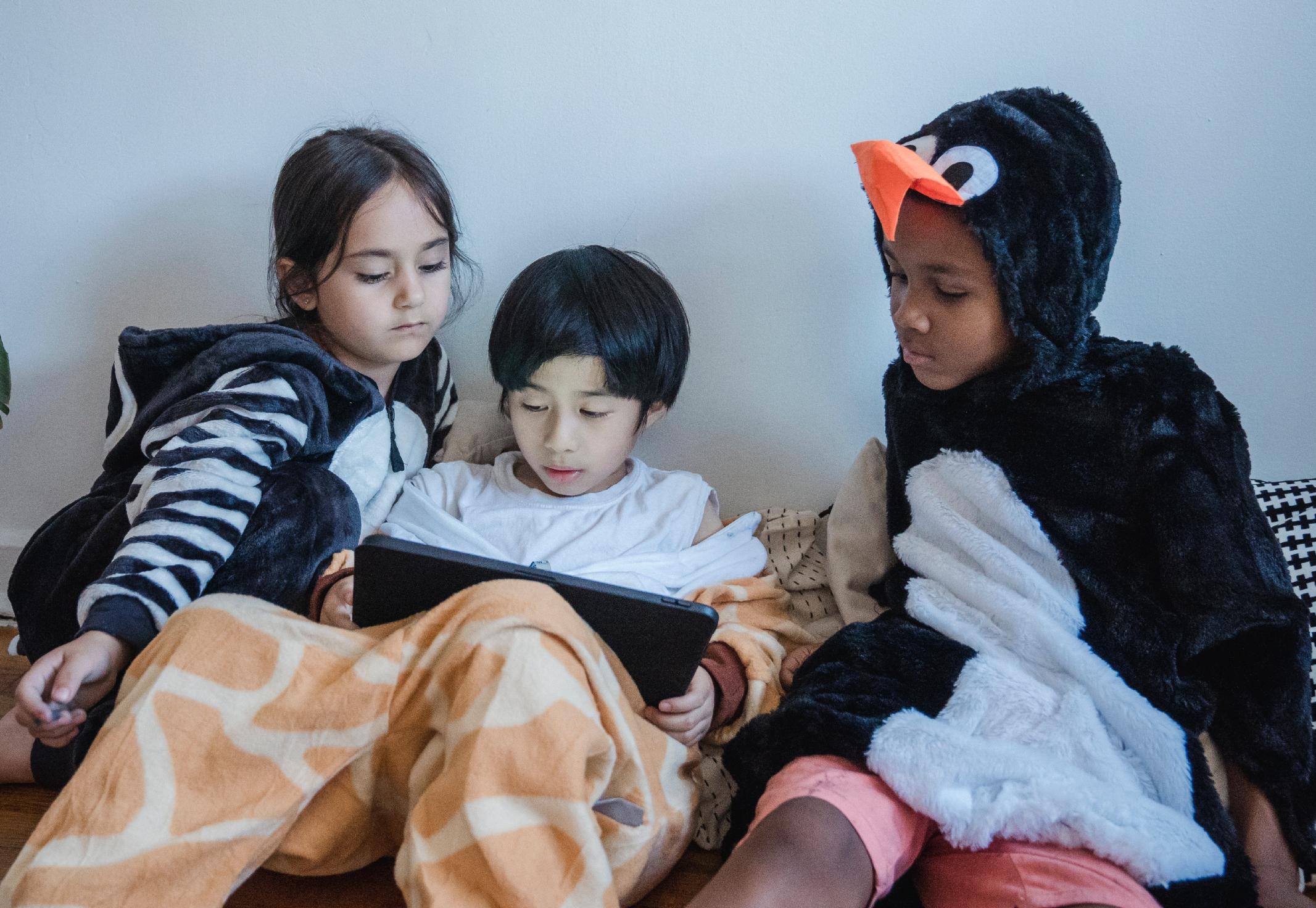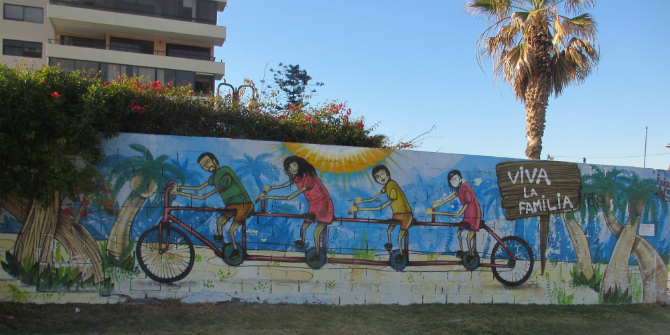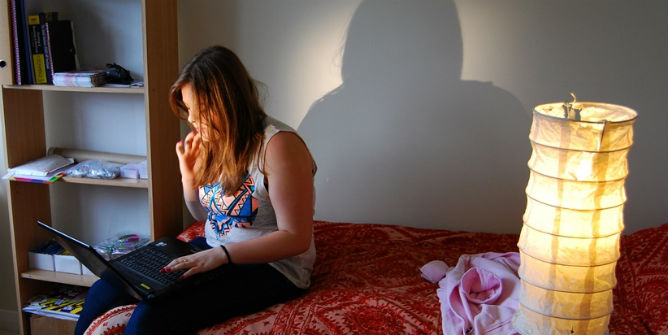 A whole generation of youth is growing up surrounded by advertisements for gambling, be it online, on radio or on television. The UK Gambling Commission’s latest report claims that the majority of 11 to 15-year-olds in the UK have seen gambling adverts on TV or social media, and it is estimated that around 31,000 children are problem gamblers. This post explores how we can become more aware of the risks that children currently face due to changes in technology and regulation. Heather Wardle is an Assistant Professor at the London School of Hygiene and Tropical Medicine and Deputy Chair of the Responsible Gambling Strategy Board. She is funded by Wellcome and her works focuses on understanding youth gambling behaviour and its relationship with technology. [Header image credit: D. Shareski, CC BY-NC 2.0]
A whole generation of youth is growing up surrounded by advertisements for gambling, be it online, on radio or on television. The UK Gambling Commission’s latest report claims that the majority of 11 to 15-year-olds in the UK have seen gambling adverts on TV or social media, and it is estimated that around 31,000 children are problem gamblers. This post explores how we can become more aware of the risks that children currently face due to changes in technology and regulation. Heather Wardle is an Assistant Professor at the London School of Hygiene and Tropical Medicine and Deputy Chair of the Responsible Gambling Strategy Board. She is funded by Wellcome and her works focuses on understanding youth gambling behaviour and its relationship with technology. [Header image credit: D. Shareski, CC BY-NC 2.0]
It was a bleary-eyed November morning when I settled down with my fractious one-year-old to watch ‘In the Night Garden’ on YouTube. Mid-way through the programme, the first advert flashed up. It was for a national online gambling slots website, advertising the fun to be had by gambling with them. I’d like to say that my concern was immediate, but as a sleep-deprived parent, it took me a while to register what just happened: that in the middle of a programme clearly aimed at children, the technology selecting which advert to show saw fit to advertise online slots.
Now, I appreciate that the advert wasn’t directly aimed at my daughter. Given my work researching gambling behaviour, the algorithms rightly think I’m interested in this. But it seems a fundamental failing if these algorithms aren’t programmed to recognise that anyone watching something like ‘In the Night Garden’ is likely to have kids with them or is a child themselves. This would be a quick fix, it’s a simple line of code that recognises that, yes, I am interested in gambling, but probably not when watching content aimed at children. Large tech companies should do this as standard, and not just for gambling but for any age-restricted activity.
This is just one example of the myriad ways that children are now exposed to gambling. A whole generation of youth is growing up surrounded by advertisements for gambling, be it online, on radio, on television and through sponsorship. In 2012, it was estimated that children, on average, were exposed to 230 television adverts for gambling products per year (Ofcom, 2013). You could easily double or triple that number if they watched any kind of live sports event.
Recent data from the Gambling Commission shows the vast majority of children in the UK aged 11-15 could recall seeing gambling adverts on TV or social media, with 42% saying they saw gambling adverts on social media at least once a week. Of those who saw social media adverts, 2% said that they had prompted them to try gambling for the first time, or had increased the amount of gambling they already did. Whilst this may seem like a fairly low level of change, it’s worth remembering that these are children being prompted to try age-restricted activities. The purpose of this advertising is to promote use, so it is not surprising that some children report these types of effects. The question for policy makers is whether, under the current system, we can ever really adequately protect children from being exposed to gambling advertising and marketing or whether the system needs to change.
The role of gambling in the lives of children is ambiguous, certainly from a policy standpoint. On the whole, most commercial forms of gambling are prohibited among those under 18. But exceptions to this are made for National Lottery products, including their online instant win games and scratchcards, football pools and other lotteries, which are legal for those aged 16 and over. Finally, there are some forms of machines, those with stakes of 10p and prizes of £5, that are legal for anyone of any age. And, of course, there are no legal restrictions about what goes on within families and between friends.
But as any young person will tell you, legal restrictions don’t mean that you don’t do it. In fact, 12% of children aged 11-16 have gambled in the past week; half of which was via age-restricted gambling activities. Often parents or older friends/relatives facilitate this gambling but not always: 43% of children who had gambled online had done so using their parents account without their knowledge (Wardle, 2018).
Why are we concerned about this? Isn’t gambling just another rite of passage for children? Well, it is and it isn’t. Some children report experiencing a range of adverse consequences because of their gambling. This ranges from gambling causing arguments with family or friends, to missing school because of gambling, to being preoccupied thinking about gambling. Overall, it is estimated that 0.9% of children aged 11-15, or 31,000 children to put it another way, have such a range of difficulties with their gambling that they are considered to be problem gamblers. Gambling is not a risk-free activity.
Furthermore, gambling or gambling-like activity is, arguably, becoming an increasing part of everyday life. Facsimile forms of gambling are increasingly available within other activities. For example, children can play social casinos or slots which replicate online slot machines or casinos but instead of gambling for cash, you gamble for virtual currency. There is gambling within video games or gambling by betting ‘skins’ (virtual possessions won or purchased within video games). The Gambling Commission estimates that around 4% of children had bet using skins in the past week, and 11% have ever done it.
It’s probably safe to say that most parents aren’t really aware of what skins gambling is or perhaps of the existence of social casinos. As I found that bleary-eyed November morning, it’s all too easy to let this wash over you, to not notice. But it is worth being vigilant – children born since 2005 are growing up in a vastly altered gambling landscape – this is both due to changes in regulation and changes in technology. You might argue that we have created the conditions for a vast generational experiment, the outcome of which is uncertain but could easily lay foundations for future problems. My hope is that this isn’t the case. My instinct perhaps tells me otherwise. But from now on, I’ll be watching ‘In the Night Garden’ using YouTube Kids, so, let’s hope, the tale of Iggle Piggle and the slot machine ends here!
This post gives the views of the author and does not represent the position of the LSE Parenting for a Digital Future blog, nor of the London School of Economics and Political Science.





